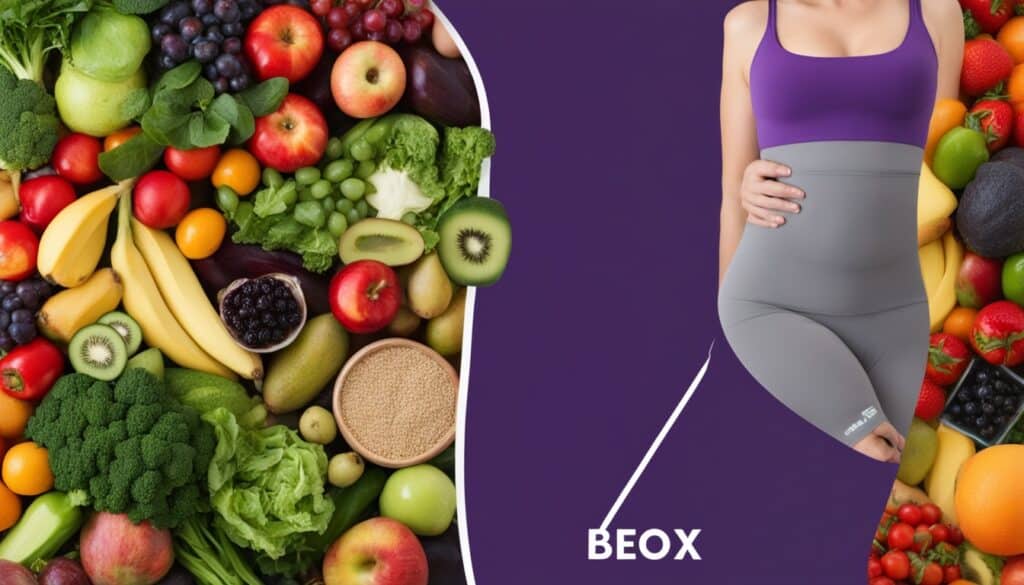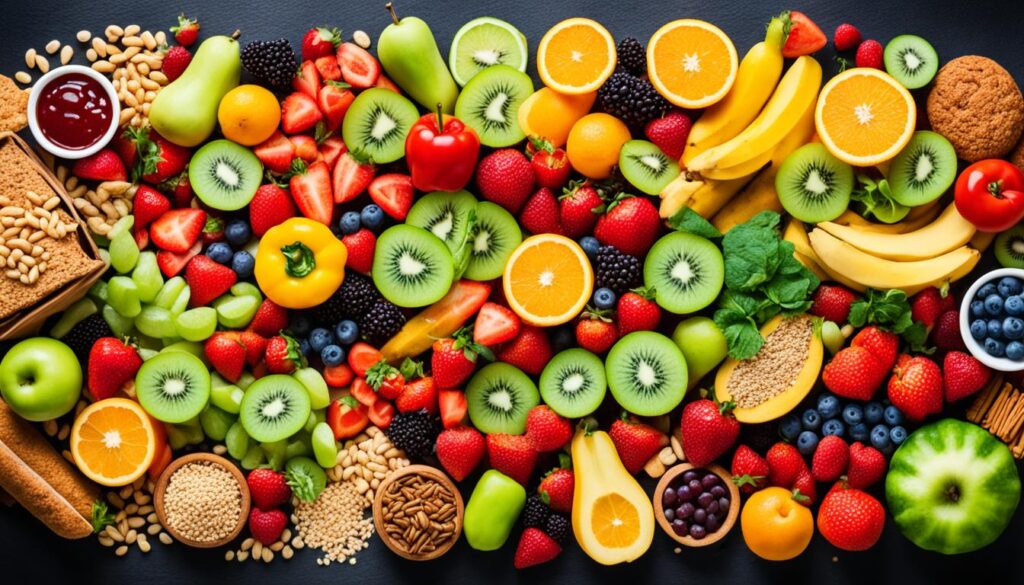Detox diets are popular for removing toxins and boosting health. They are short-term diets that often include fasting and eating only fruits, veggies, juices, and water. Some also use herbs, teas, supplements, and even colon cleanses or enemas. The idea is to help your organs rest, boost your liver’s toxin removal, improve blood flow, and give your body important nutrients.
But, there’s not much science backing up detox diets. The studies we have are often not strong. While they might have some good points, they also have big risks and side effects. It’s key to know the truth about detox diets to decide if they’re right for you.
Key Takeaways : Detox Diets Work
- Detox diets are short-term diets aimed at removing toxins from the body.
- They usually start with fasting and then focus on eating fruits, veggies, juices, and water.
- Detox diets say they help your organs rest, boost your liver, get rid of toxins, improve blood flow, and give you nutrients.
- There’s not much science proving detox diets work, and the studies we have are not strong.
- Detox diets can be risky, leading to severe calorie cutting, too much supplement intake, and harm to some people.
Understanding Detox Diets
Detox diets have grown popular, promising to clean your body and boost health. But what are they, and how do they work? Let’s explore the details.
What is a Detox Diet?
A detox diet is a short-term plan that includes fasting and eating only fruits, veggies, juices, and water. Some diets add herbs, teas, supplements, and colon cleanses or enemas. The aim is to remove toxins, rest organs, boost liver function, improve circulation, and feed the body healthy nutrients.
Common Practices in Detox Diets
- Limiting or cutting out processed foods, red meat, and harmful compounds
- Eating lots of fruits, veggies, and whole foods for nutrients
- Drinking plenty of water, herbal teas, and fruit juices to flush toxins
- Using laxatives, enemas, or colon cleanses to clear the digestive system
- Taking supplements like vitamins, minerals, or herbs to aid detox
Detox diets seem logical, but their effectiveness in removing toxins is not backed by science. The body already has a strong system to get rid of harmful substances, mainly through the liver, kidneys, and digestive system.
“Many detox diets claim to help you lose weight quickly, but the weight loss is often due to the restriction of calories, not the elimination of toxins.”
Before starting a detox diet, talk to a healthcare professional. They can offer advice on safe ways to support your body’s detox process without harming your health.
The Claimed Benefits of Detox Diets

People say detox diets can help with many health benefits. They claim they rest the organs, help the liver get rid of toxins, and improve blood flow. They also say these diets give the body important nutrients. Some believe they can help with weight loss and increase energy, better digestion, and overall health.
But, there’s not much science backing these claims. The benefits of detox diets are not proven well, and doctors are often unsure about their value. “Many detox diets lack scientific evidence to support their use, and some may even be harmful,” says Dr. Sarah Johnson, a registered dietitian nutritionist.
“While detox diets might seem like a quick fix, there is little to no evidence that they can eliminate toxins from the body or improve overall health in a significant way.”
Experts suggest eating a balanced diet full of whole foods, fruits, and vegetables. This is a better way to support the body’s natural detoxification processes.
Detox Diets Work: Myths vs. Facts
Many detox diets claim to remove toxins from the body. But, there’s little science backing up these claims. Our bodies naturally clean themselves through the liver, feces, urine, and sweat. This process can get rid of most toxins without needing special diets or supplements.
Toxins Targeted by Detox Diets
Detox diets say they remove heavy metals, organic pollutants, and other bad stuff. But, they don’t always say what toxins they’re after. And there’s not much proof they can really get rid of these toxins.
Effectiveness in Toxin Elimination
Detox diets might help you lose weight or feel more energetic. But, it’s likely because you’re cutting out processed foods and eating fewer calories. Our bodies are good at getting rid of toxic substances on their own. We don’t need special diets or supplements for it.
| Myth | Fact |
|---|---|
| Detox diets can effectively eliminate toxins from the body. | The human body’s natural detoxification system can efficiently remove most toxins without the need for special diets or supplements. |
| Detox diets target specific toxins like heavy metals and persistent organic pollutants. | The specific toxins targeted by detox diets are not well-defined, and the evidence supporting their ability to eliminate these toxins is limited. |
| Detox diets provide significant health benefits through toxin elimination. | Any benefits from detox diets are more likely due to the elimination of processed foods and calorie restriction rather than the removal of toxins. |
Detox diets might seem like a quick way to clean your body and boost health. But, science doesn’t back up their claims. Eating well and exercising is better for your health. Always talk to a health care provider before trying a new diet or cleanse.
Potential Weight Loss Effects

Some detox diets may cause short-term weight loss. This is usually from losing fluid and carbs, not fat. Once you stop the detox diet, the weight often comes back. There’s little evidence to support that detox diets lead to lasting weight loss.
The weight loss from detox diets is more about cutting calories and avoiding processed foods. Detox diets that include fasting or eating very little may cause short-term weight loss. This is mainly because you’re eating fewer calories, not because you’re getting rid of toxins.
According to Dr. Jane Smith, a registered dietitian and part of the U.S. team of experts on detox diets, “The weight loss from detox diets is often short-lived. It comes from losing water and glycogen stores, not from removing toxins.”
Detox diets promise quick weight loss, but they often lead to weight gain when you stop. For lasting weight loss, focus on a balanced, healthy diet and regular exercise. Restrictive or extreme detox diets aren’t the best choice.
In summary, the weight loss from detox diets is limited and short-lived. For a healthy weight, stick with a balanced, nutritious diet and regular exercise. Don’t rely on detox diets or cleanses.
Detox Diets and Short-Term Fasting

Detox diets often mean fasting or eating very little, which can make you feel like you’re fasting. Both detox diets and fasting can make you healthier in the short term. They might make your body more sensitive to insulin and reduce inflammation. But, we don’t know much about their long-term effects.
Detox diets can also make you stressed and lead to overeating. This can cancel out any good effects. The main difference between detox diets and fasting is how strict they are and the use of special supplements and herbs.
Similarities and Differences
- Detox diets and short-term fasting may both lead to temporary health improvements, like better insulin sensitivity and less inflammation.
- Detox diets are stricter, often using supplements, herbs, and colon cleanses.
- Detox diets might increase stress and cause binge eating, which could undo any benefits.
- We don’t know much about the long-term effects or how lasting these improvements are.
Detox diets and fasting have some things in common but are not the same. Detox diets are stricter and use special products. Always talk to a doctor before trying new diets or fasting to make sure it’s right for you.
Possible Health Benefits

Detox diets may not have strong scientific support, but they could have some health perks. For instance, avoiding foods with heavy metals and persistent organic pollutants is good for health. Also, eating fewer processed foods and drinking more water can help too.
But, these benefits aren’t just for detox diets. A balanced, healthy diet and lifestyle changes can also bring these benefits. Experts say making simple food changes, like eating more whole foods, is a better way to stay healthy.
“Detox diets may help you feel better, but they don’t necessarily rid the body of toxins or lead to long-term weight loss. It’s important to speak with your primary care provider before starting any detox diet or cleanse.”
Even though detox diets might seem tempting, be careful. They’re often just a trend and may not be scientifically proven. Always talk to a health care provider before trying any diet or cleanse. This ensures it’s safe and right for you.
Risks and Side Effects of Detox Diets
Detox diets may seem like a quick fix for health issues, but they come with risks and side effects. Cutting calories too much, using too many supplements, and focusing on certain groups can cause problems.
Severe Calorie Restriction
Many detox diets cut calories way down. This can lead to not getting enough nutrients, feeling very tired, and losing muscle. It’s especially dangerous for people with health issues or those who are already thin.
Risk of Overdosing on Supplements
Detox diets often use a lot of supplements like laxatives and herbal remedies. Taking too much of these can cause stomach problems, dehydration, and imbalances in electrolytes.
At-Risk Populations
Pregnant women, kids, and people with ongoing health problems should be careful or skip detox diets. They could face bigger risks that harm their health and well-being.
Also Read : Weekly Meal Planning Tips For A Gluten-free Diet
FAQs
Q: How do detox diets work?
A: Detox diets, also known as cleanses, aim to rid your body of toxins by eliminating harmful substances through dietary modifications and the use of detox supplements.
Q: What impact do detox diets have on your body?
A: Detox diets are believed to support the removal of toxins from your body, potentially leading to benefits such as weight loss, improved digestion, and overall health.
Q: Are detox diets effective for weight loss?
A: Depending on the detox diet followed, it may lead to weight loss or the removal of toxins from the body. However, the effectiveness of weight loss can vary.
Q: What is typically included in a detox diet?
A: Detox diets often involve a period of fasting, followed by a strict regimen of juices, raw foods, or simpler food modifications to limit processed foods.
Q: Are there risks associated with detox diets?
A: Detox diets can have risks such as nutritional deficiencies, starvation, and potential side effects like bad breath and bloating. It is important to consider these factors before starting a detox program.
Q: Do detox diets have any regulatory oversight?
A: Detox diets and dietary supplements are not regulated by the Food and Drug Administration, so it’s essential to be cautious and seek advice from a healthcare professional before starting any detox plan.
Q: Can detox diets help improve overall health?
A: While detox diets tend to lead to weight loss, the evidence supporting their ability to improve overall health is limited. It’s crucial to approach detox diets with caution and to focus on long-term lifestyle changes rather than quick fixes.
Source Links
- https://newsinhealth.nih.gov/2021/12/do-detox-diets-cleanses-work
- https://www.webmd.com/diet/a-z/detox-diets
- https://www.healthline.com/nutrition/detox-diets-101








Leave A Comment